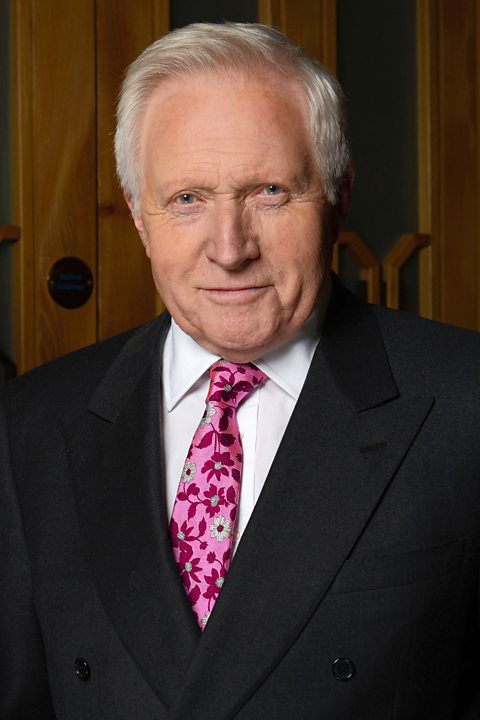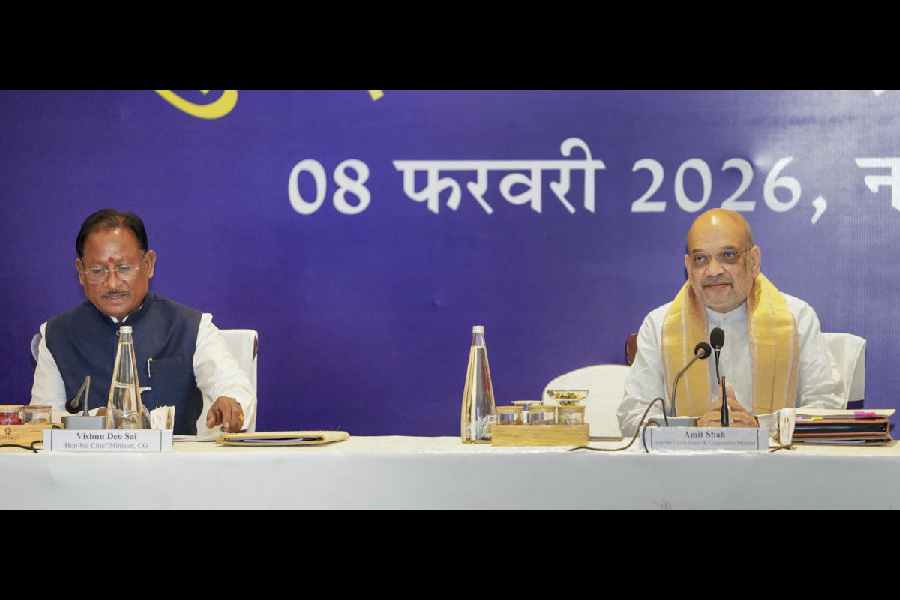It was all very civilised and British. At the end of a fierce debate over —what else? — Brexit, David Dimbleby received a standing ovation from his five panellists and an ethnically-mixed audience on Thursday night as he stood down as presenter of the BBC’s flagship Question Time after 25 years.
The programme, which is now an intrinsic part of British life, will return after the Christmas break on January 10, 2019, with 54-year-old Fiona Bruce, the first woman in the chair.
Hers was as much a political appointment as a journalistic one. The BBC, under fire for paying its senior female journalists less their male counterparts, seriously considered a women only shortlist for one of the most profile jobs in television by way of making a conciliatory gesture.
Dimbleby, who announced he was stepping down on turning 80, seemed embarrassed at the sustained applause at the end of his last programme.
“After a quarter of a century I’m off to new pastures, or to look in search of new pastures,” he said.
“But I didn’t want to end without saying something about this programme which is, of all the programmes I have ever worked in for the BBC, a truly team effort and I did want to end by thanking the people who have made it possible over the last 25 years.”
He added: “Above all, I wanted to thank you here tonight, this audience and you’re joining over 100,000 people over the last 25 years who have been in the Question Time audience and you have exercised this, what I think is a really important democratic right, which is to put questions and to argue with each other as you have tonight.”
And argue his panellists certainly did on Thursday night.
They comprised former Brexit secretary David Davies, who resigned from Theresa May’s cabinet; former Tory cabinet minister Nicky Morgan, who has been a strong Remainer; the Green Party’s solitary MP in parliament, Caroline Lucas, wants a second referendum; Labour’s shadow education secretary, Angela Rayler, who wants a general election; and the comedian Jo Brand.
Even as the five were disagreeing with each other over Brexit, reflecting the deep divisions in the political establishment and the country over the UK’s membership of the European Union, the Prime Minister was in Brussels with little to show for her efforts.
She was told by EU leaders that they were not prepared to reopen negotiations on the legally binding withdrawal agreement but could “clarify” the political declaration, especially in relation to the “backstop” arrangement over the status of Northern Ireland.
This means the withdrawal agreement will not be passed by the Commons in the vote to take place before January 21.
May said the deal was “at risk” if MPs’ concerns could not be addressed, to which the European Commission president Jean-Claude Juncker retorted: “Our UK friends need to say what they want, instead of asking us to say what we want, and so we would like within a few weeks our UK friends to set out their expectations for us, because this debate is sometimes nebulous and imprecise and I would like clarifications.”
On Friday, former Labour Prime Minister again pressed for a second referendum, a point of view gathering increasing support.
In the current climate in Britain, where black is white and white is black and fair is foul and foul is fair, Friday’s leader comment in The Daily Telegraph summed up how little room there was for compromise: “Die-hard Remainers are the real extremists.”
This was a response to the chancellor Philip Hammond, who said that the 200-117 vote for May in the leadership contest on Wednesday evening would “flush out the extremists”.
Brexiteers in his own party called him a “moron”.
By comparison with the present behaviour of British MPs, “Indians parliamentarians are paragons of virtue,” an Indian told his
British friends, adding, “I thought we Indians are the ones who are supposed to behave badly.”










